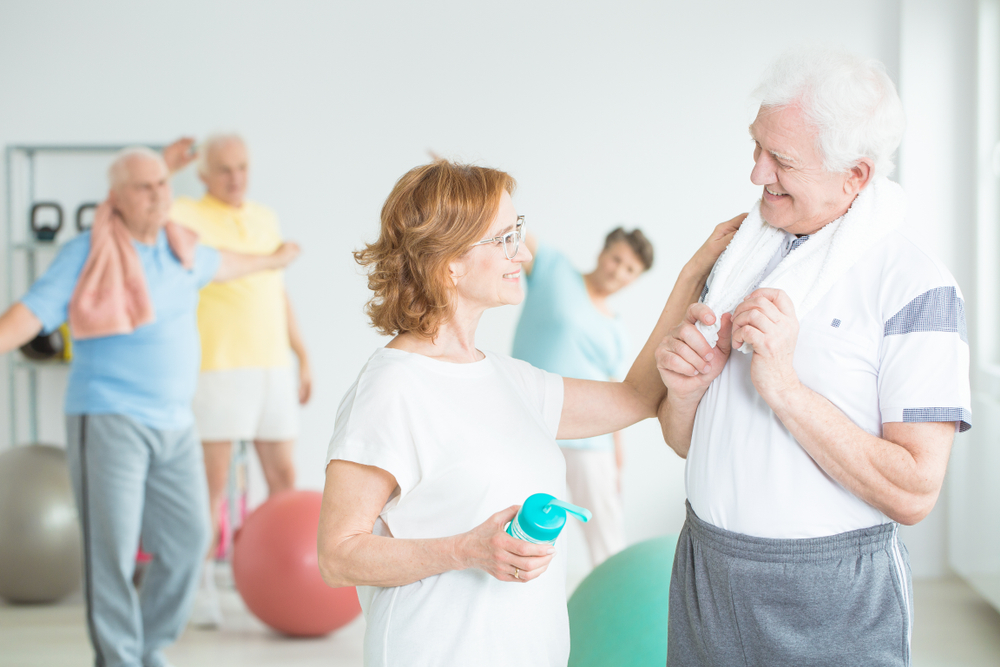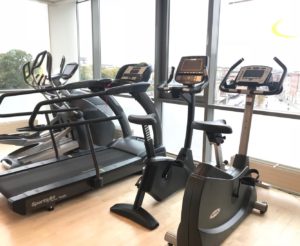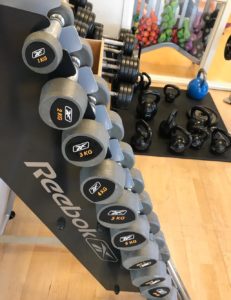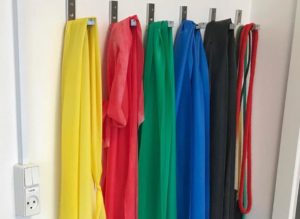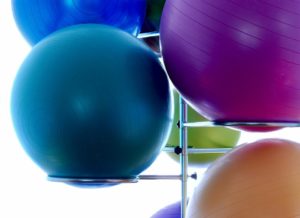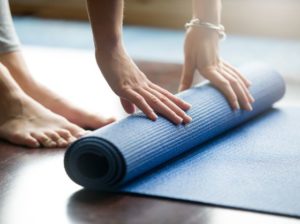The GLA:D® Program is a standardised but individualised group-based exercise program, designed to be run in private practices, community health centres and hospital outpatient facilities. It supports clinicians to provide guideline-based education and exercise-therapy to people with hip and knee osteoarthritis.
It is provided by clinicians who have been trained and certified by GLA:D® Australia (see https://gladaustralia.com.au/training-course-information-for-clinicians/ for training information).
The GLA:D® Program is an education and supervised exercise program, involving:
- An initial assessment: 2 short outcome measures are completed (30 sec chair stand test and 40m walk test) (OARSI tests)
- 2 x group education sessions: ~60-90 mins duration, delivered preferably before participant starts.
- 12 x supervised group exercise sessions: ~60 mins duration, delivered twice weekly.
- A follow-up assessment: 3 months after the initial assessment, where the two outcome measures are measured again, and there is a review of goals and planning for next steps.
- Online questionnaires: Participants also complete an online questionnaire at baseline, 3 months and 12 months post initial assessment
Please note: all above components must be delivered by a GLA:D® certified clinician.
Providers set the cost of the Program at their organisation/clinic, with many private clinics charging between $500-$1000. This varies depending on the community, clients, clinic, what is included in the bundle of services, and a range of other conditions.
Private Health
The private health insurance landscape is currently undergoing a period of change and we recommend clinicians individually discuss options with patients. Eligible participants will receive a rebate from their private health insurers. The exercise sessions provided through GLA:D® are supervised and personalised, and so can be billed under a “Group Consultation”, item code 560 (physiotherapists) or 502 (accredited exercise physiologists), with eligible participants receiving a rebate from their private health insurers.
Some private health insurers are offering the program funded in full through hospital-level insurance to those members who meet specific eligibility criteria and complete the program through approved clinics. These options should be explored directly with the insurer.
Medicare
Medicare-subsidised visits, under the MBS Chronic Disease Management Framework codes are only valid for 1:1 consultations of more than 20 minutes, which could include the participant’s initial assessment, 3 month follow-up assessment and 1:1 supervised exercise sessions. To access this funding, people must be referred by the GP according to the current Department of Health requirements (GP Chronic Condition Management Plan). (Physiotherapists item 10960, AEPs item 10953)
Work Cover, TAC, MAIC, DVA and other specific programs
Under most specific insurance schemes, clinicians need to apply as for any other patient and outline the treatment plan, including GLA:D®. As with all other treatment plans, appropriate justification needs to be provided.
Apart from the specific private health insurance pilot programs, the GLA:D® program is provided as part of usual care, and usual fees/funding pathways apply accordingly.
- Cost and length of education sessions: Education is a first-line recommended intervention for hip and knee osteoarthritis, as seen in a range of clinical guidelines worldwide. There are two prescribed education sessions that are mandatory as part of the GLA:D® Program. Currently in Australia, different funding options may not reimburse participants for education, and so this is part of our advocacy work. These sessions will run from 1-1.5 hours depending on participant discussion. The GLA:D® Program is generally run as a group session, but can be run individually, depending on the participant’s needs.
- Number of exercise sessions a week: Minimum of 2-3 to provide some flexibility in days and timing, as clinic commitments permit. Sessions require 60 minutes each.
- Number of participants per exercise session: The exercises are personalised to the individual and their goals. This means that usually there is a maximum of 4-6 participants for one certified clinician at a time.
- Cost of NeMEx exercise sessions: The specific fee will be established by the clinic, but GLA:D® sessions will typically be priced similarly to Pilates and other group clinical exercise sessions.
All GLA:D® education and exercise sessions must be delivered by a trained GLA:D® Clinician who has current certification.
ONLY clinicians with current GLA:D® certification are permitted to:
- Deliver the formal education sessions
- Conduct the GLA:D® NeMEx sessions
It is recommended that, wherever possible, at least two clinicians are certified and able to provide the program. This allows for continuity in the case of staff illness, absence and change-over.
Who else can help your clinic deliver the program?
Administrative staff, Allied Health Assistants, other AEPs and physiotherapists can support the delivery of the program with the following tasks as appropriate to their roles:
- Registering participants
- Setting up exercise space
- Supporting a safe exercise environment
- Reinforcing evidence-based messaging about osteoarthritis
- Referring participants
- Supporting consistent delivery of all aspects of the program through planning and procedure development
The following is the equipment needed for a GLA:D® class of 4:
|
|
|
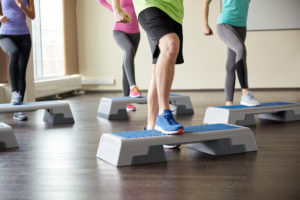 Steps: Small / medium / large Steps: Small / medium / large |
|
|
|
|
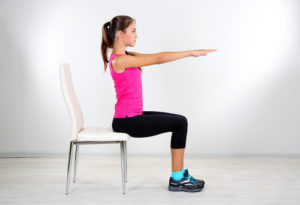 Sturdy chair x2 Sturdy chair x2 |
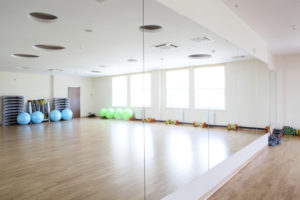 Mirrors Mirrors |
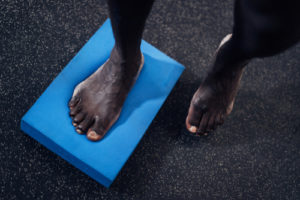 Floor sliders /mats x4-6, balance mats x4-6, broomsticks x4-6 Floor sliders /mats x4-6, balance mats x4-6, broomsticks x4-6 |
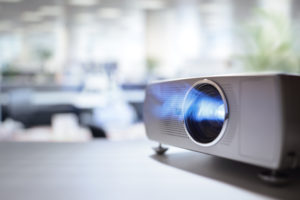
Projector /laptop and whitewall or screen for educational sessions |
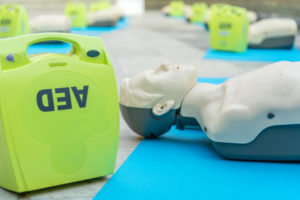
Up to date defibrillator and advanced CPR certification |
Suitable spaces for classes:
- Small gym areas (~5m x 5m)
- Multipurpose rooms
- Pilates Studios
Education sessions:
- You will need a space to deliver these to participants, either in a small group or individually, and a large TV or Projector for the presentation.
Outcome measures:
- You will also need a walkway for assessment of fast walking speed.
• Lunges: https://nemex.trekeducation.org/lunges/
• Functional: https://nemex.trekeducation.org/functional/
• Knee strength: https://nemex.trekeducation.org/knee-strength/
• Hip strength: https://nemex.trekeducation.org/hip-strength/
• Trunk strength: https://nemex.trekeducation.org/trunk-strength/
Topics discussed in education sessions
- Session 1: osteoarthritis (OA) overview; risk factors; treatment options.
- Session 2: exercise for OA; everyday activities and OA; self-management
- Optional Session 3: Discussion with a past participant, other relevant allied health professional (psychologist/counsellor/podiatrist/dietitan)

